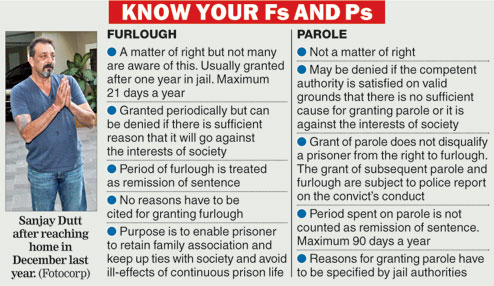Parole and Furlough
- Parole is a system of releasing a prisoner with suspension of the sentence. The release is conditional, usually subject to behaviour, and requires periodic reporting to the authorities for a set period of time.
- Parole may be denied to a convict while furlough is seen as a matter of right, to be granted periodically irrespective of any reason and to enable the prisoner to retain family and social ties.
- Parole is not a matter of right and may be denied to a prisoner even when he makes out a sufficient case.
- Furlough is typically given in cases of long jail terms. The period of furlough granted to a prisoner is treated as remission of his sentence.
- Usually, furlough can be obtained thrice a year and is given to inmates with good behaviour.
- Parole is granted by the state executive and competent authority takes a final decision on grant of parole on humanitarian considerations.
- If parole is rejected, the convict can move the High Court challenging the order of the competent authority.
- Also, apart from regular parole, the superintendent of a jail can also grant parole up to a period of seven days in emergent cases.


